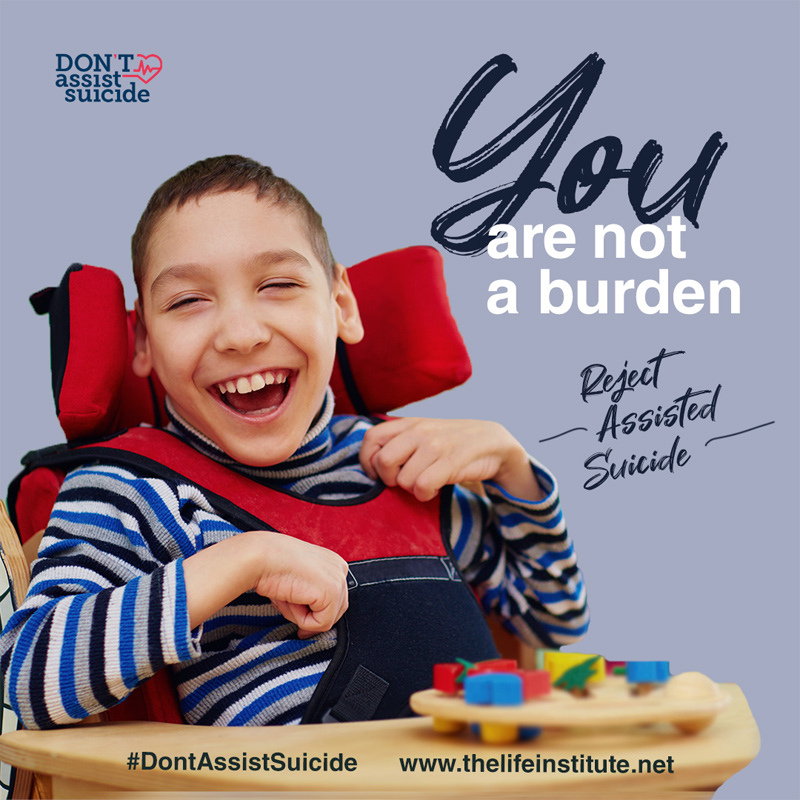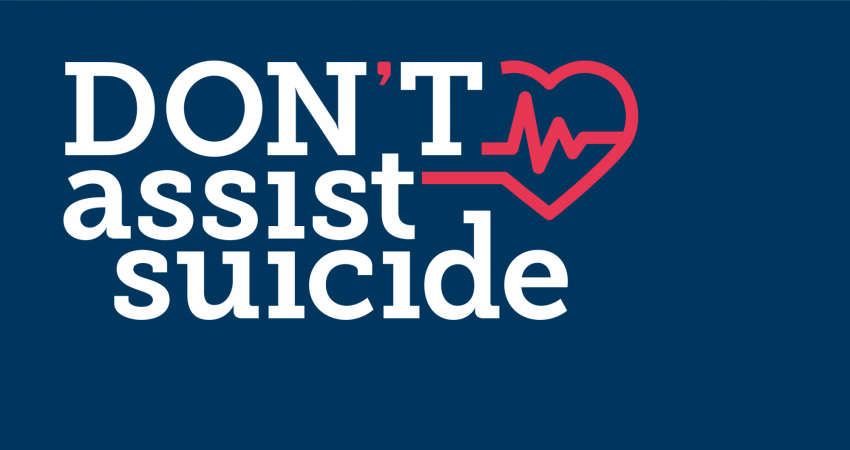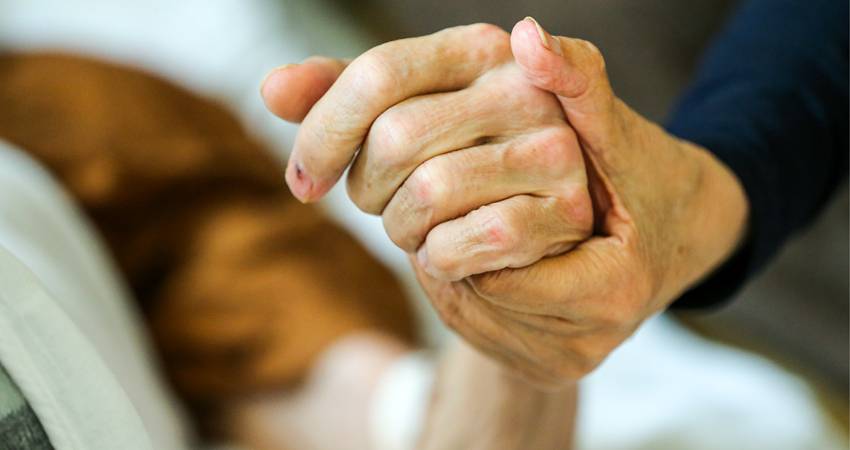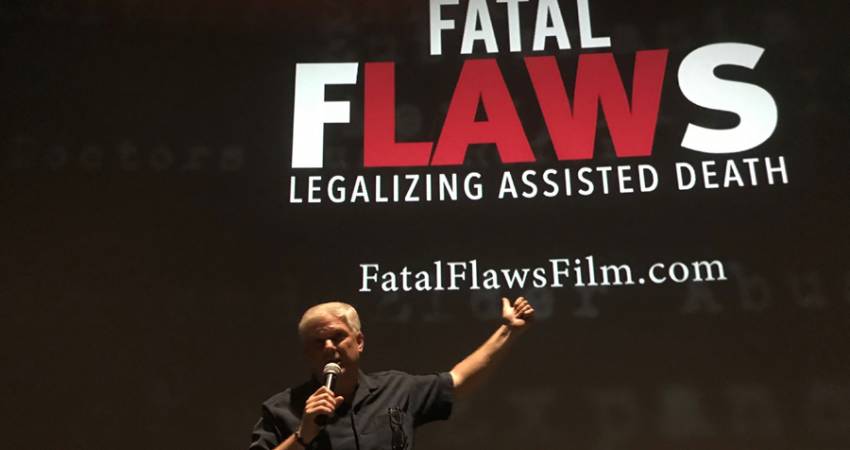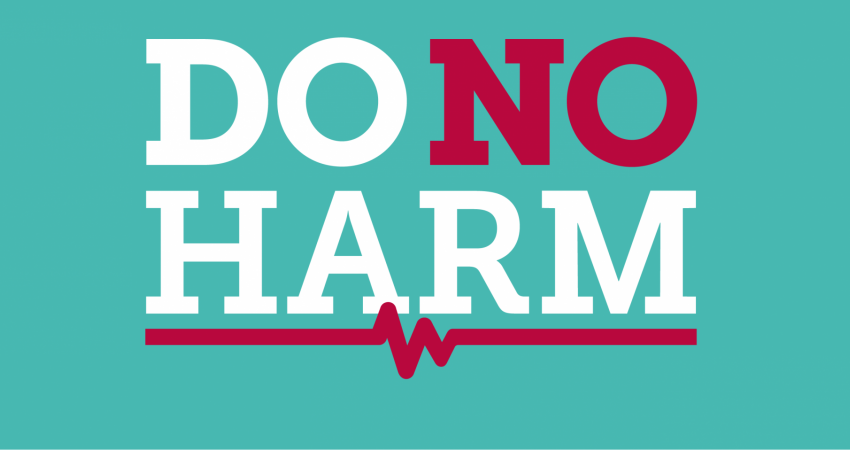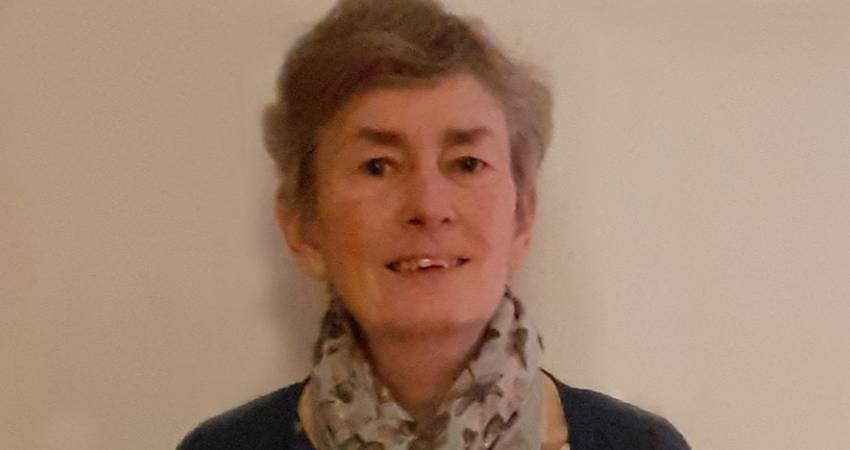Send your Submission
Make your submission to oppose Assisted Suicide
The Oireachtas Committee on Justice has invited written submissions on a Bill introduced by Gino Kenny TD which seeks to make Assisted Suicide legal, endangering elderly, sick and vulnerable people, including those with disabilities. The Bill is euphemistically entitled the Dying with Dignity Bill 2020.
It is very important that you take some time to send in a submission BEFORE the closing date of Friday 29th January at 12 noon. You can email your submission to dyingwithdignity@oireachtas.ie In a covering email you can give your name, email address and contact telephone number as they are not for publication.
Please find a sample submission below which you can use to help with your own submission. Some people also share personal stories which they feel have an impact on the debate, particularly if they or a family member had a condition or disability which leave them vulnerable to suggestions of Assisted Suicide.
You can send a copy (below) of the Life Institute Submission by email if you wish with a covering letter.
Submission of the Life Institute to the Oireactas Committee on Justice regarding Assisted Suicide
EXECUTIVE SUMMARY
The bill before the Committee seeks to legalise Assisted Suicide in Ireland. In order to have an open and honest debate, euphemistic language should be avoided. Assisted Suicide enables a doctor to help a sick person end their life.
This submission points to four fatal flaws in Mr Kenny's bill, and warns that the failure to include rudimentary safeguards indicates an astonishing carelessness as to the protection of vulnerable people.
It points to the evidence of palliative care experts - the doctors who provide end of life care - and who are overwhelmingly opposed to Assisted Suicide. It also argues that legalising Assisted Suicide would endanger those who are sick, vulnerable, elderly and living with a disability by undermining the value of their lives. It also makes the point that giving Assisted Suicide approval in law contradicts, confuses and undermines anti-suicide messaging. It looks at growing evidence that researchers are now pointing to Assisted Suicide as a means to cut healthcare costs. And finally, it summarises evidence from other jurisdictions where rates of Assisted Suicide have rocketed.
FOUR KEY FLAWS IN GINO KENNY'S BILL
1. Despite media claims, relief of pain and suffering is not mentioned in the Bill
Although media reports around the Bill frequently repeat the campaigning argument that the measure will only seek to help those who are experiencing “unbearable suffering”, the Bill contains no such requirement as a grounds for Assisted Suicide. In fact, no reference is made to pain and suffering anywhere in the Bill. There is no requirement that the person who seeks a doctor to end their life is experiencing unbearable pain or suffering, as is often claimed. It’s simply not in the text of the proposed legislation.
Inexplicably, Deputy Kenny, in a September 2020 discussion on Newstalk did not seem to be aware of the contents of his own bill, insisting that his proposal provides Assisted Suicide as a relief for “unbearable suffering”, when it does no such thing. It is to be assumed that the Justice Committee is more familiar with the Bill than its originator.
2. The term "terminally ill" is wide open, with no requirement to be at end of life
The Bill requires that a person be ‘terminally ill’ to avail of assisted suicide. A terminally ill person is defined as “having an incurable and progressive illness which cannot be reversed by treatment, and the person is likely to die as a result of that illness or complications”. This broad definition could include Parkinsons, heart disease, dementia and many other conditions.
As the Committee will be aware, people suffering from incurable and progressive diseases can live for many years. Yet, there is no requirement that the person be at the end of life to seek assisted suicide - once a diagnosis is received, the ending of one's life can be requested.
3. The Bill ignores the evidence that vulnerable people will be pressured to end their lives
The Bill makes almost no effort to include safeguards for vulnerable people. It is now well established from the experience of other countries that vulnerable people feel under pressure to die by Assisted Suicide. Some 56% of people who died by assisted suicide said that being a burden on family, friends and caregivers was a reason to end their lives, according to a 2017 study in Washington State.
4. Conscience rights are not protected
Doctors would be obliged to refer patients for assisted suicide, striking down their right to conscientious objection.
EIGHT REASONS TO OPPOSE ASSISTED SUICIDE
1. Doctors have urged legislators not to legalise Assisted Suicide - and to support palliative care
The Irish Palliative Medicine Consultants’ Association (IPMCA) are the medical experts who focus on managing and relieving pain, especially at end-of-life. The IPMCA wrote to TDs in 2020 saying, with palliative care, even severe physical or psychological distress can be managed.
They say they are “opposed to any form of legislation for assisted dying, assisted suicide or euthanasia in Ireland” and that “compassion, advocacy and support are at the heart of the palliative care that is delivered across Ireland to those who are suffering as a result of advanced illness”. They also say that “intended and inevitable unintended consequences of the proposed legislation are stark and unthinkable”.
The Royal College of Physicians of Ireland (RCPI) says advances in medicine and in palliative care mean that “nobody should be suffering either mentally or physically”, and that “in the worst cases, palliative sedation [is] available to address intractable physical pain”. It opposes assisted suicide “because it is contrary to best medical practice” and prefers “a considered and compassionate approach to caring for, and proactively meeting the needs and concerns of patients who may be approaching the end of their life”.
The RCPI is also concerned that a move towards assisted suicide would result in a shift in focus away from the development and the delivery of palliative care services and cure, and that research into palliative care may be discouraged.
A 2020 survey by the IPMCA showed that 88% of palliative medicine doctors are opposed to assisted suicide. In Britain, a 2019 survey found that 84% of doctors there felt the same. The Royal College of Physicians in Ireland says assisted suicide “is contrary to best medical practice”
The view of the leading medical experts caring for terminally ill and elderly patients could be summarised in the words of Prof Tony O’Brien who told the High Court in the Fleming case that doctors should not seek to “kill pain by killing patients”.
2. The number of people ending their lives increases rapidly once the law changes.
In Canada, the number of people availing of assisted suicide has increased five-fold in just four years since 2015. In Belgium, euthanasia cases have increased by a factor of ten since 2003, while the Netherlands has seen an almost five-fold increase in deaths since 2002.
These rapidly increasing rates of deaths from Assisted Suicide should give even the most ideological campaigner pause.
Belgium has allowed children to be euthanised since 2014, and the euthanasia of children is also now permitted in the Netherlands.
3. The number of other suicides also increases - by 34% in the Netherlands
Does assisted suicide seriously undermine the anti-suicide messages society has worked so hard to build?
Professor Theo Boer, a leading Dutch expert who sat on euthanasia review panels for almost a decade, has shown that after euthanasia was legalised in the Netherlands the number of other suicides went up - with a rise of almost 34% in less than a decade. “In surrounding countries, most of which have no assisted dying practice, the suicide numbers went down. Germany, with a population much like the Dutch in terms of age, economy, and religion, saw its suicide numbers decrease by 10 percent in the same period,” he wrote.
It had been claimed that legalising assisted suicide would reduce the number of total suicides, but research contrasting the experiences of states in the U.S. found that legalizing assisted suicide “has been associated with an increased rate of total suicides” and “no decrease in non-assisted suicides”.
4. Vulnerable people can feel pressured to end their lives
Some 56% of people who were killed by assisted dying said being a burden on family, friends and caregivers was a reason to end their lives, according to a 2017 study in Washington State - with 54% saying the same in Oregon in 2018. In the Netherlands, it has been estimated that 1 in 5 patients who sought euthanasia came under pressure to end their lives.
Please see some of the disturbing cases that have already arisen where vulnerable people have been pressured to die by Assisted Suicide below.
A recent survey by the Dutch medics’ federation KNMG also found that 70% of doctors had felt under pressure to grant euthanasia.
5. Assisted Suicide is also strongly opposed by disability groups
Disability groups are some of the strongest voices against assisted suicide. As activist Mark Davis Pickup who has MS says, his healthy neighbours will get suicide prevention while he’ll be offered assisted suicide. The Royal College of Physicians notes: “All major UK advocacy groups for disability have rejected assisted suicide.”
The American Association of People with Disabilities says assisted suicide laws also give “insurance companies and physicians new rights too – the legal means to deny treatment”. In Canada, a UN disabilities advocate reported in 2019 that she had “received worrisome claims about persons with disabilities in institutions being pressured to seek medical assistance in dying, and practitioners not formally reporting cases involving persons with disabilities.”
“Suicide is not seen as socially desirable, so why is assisted suicide seen as compassionate when it’s for ill or disabled people?" says Liz Carr, a disability activist and actress
6. The Irish Courts have ruled that safeguards are impossible
The High Court in the Fleming case ruled that: “even with the most rigorous systems of legislative checks and safeguards, it would be impossible to ensure that the aged, the disabled, the poor, the unwanted, the rejected, the lonely, the impulsive, the financially compromised and emotionally vulnerable would not avail of this option to avoid a sense of being a burden to their family and society.”
The Supreme Court, on appeal in 2013, warned of the difficulty in changing the law “without jeopardising an essential fabric of the legal system – namely respect for human life and compromising these protections for others”.
7. Assisted Suicide can be seen as a means of cutting healthcare costs
While campaigners insist this is about choice, in reality, insurance companies, budget committees and others are looking at cost savings. After Assisted Suicide was legalised in Canada, a paper published in a leading medical journal, The Canadian Medical Association Journal, claimed that millions of dollars could be saved in health care spending by ‘assisting’ people to die. It “could result in substantial savings”, the paper noted approvingly.
A Canadian budget report said $149 million could be "saved" on the annual cost of end-of-life care by assisted suicide. This is a very disturbing trend, particularly in light of ageing populations and increased pressures on healthcare budgets.
Dr Brian Callister, a physician practising in Nevada, spoke out on he danger for people who were sick and vulnerable.
"I had two patients recently in Nevada on my service; both needed life-saving procedures - not palliative care, not hospice, these would have been curative procedures," he stated. "One patient was from California which has passed assisted suicide and one patient was from Oregon which has had it for 20 years. In both cases when I was explaining the need for transfer for a life-saving treatment to the insurance medical director in both of those states assisted suicide was offered up instead.
He says: "The disabled, the depressed, the poor and the marginalized are being forced down this road because they're going to be denied treatment by insurance companies. It's a travesty of social justice."
The next section presents some of the cases that have come to light which indicate that insurance companies and other agents see Assisted Suicide as a preferable alternative to continued care.
8. Disturbing Cases Have come to Light
California
One week after California legalised Assisted Suicide in 2016, Stephanie Packer, who was fighting terminal cancer, received a disturbing letter from her health insurance company. Stephanie was told that the chemotherapy treatment the insurance company had previously promised was now being denied. However, she was later informed that her plan would cover the cost of pills for assisted suicide — which would come to just $1.20. For Ms Packer, the reality of how insurers were thinking really "hit her in the gut. “The most cost-effective solution was now assisted suicide," she told Columbia magazine.
Oregon
Barbara Wagner, in Oregon , was seeking chemotherapy treatment to fight her advanced lung cancer. ABC News reported that The Oregon Health Plan office refused to pay $4,000 per month because it wasn’t within its narrow guidelines of appropriate treatment. But it did offer to pay $50 for lethal prescription drugs to end her life. Wagner told the local newspaper: “To say to someone, ‘we’ll pay for you to die, but not pay for you to live,’ it’s cruel.”
Ontario
In 2018, Roger Foley from Ontario, who suffers from an incurable neurological disease, made audio recordings of hospital staff offering him medically assisted death, although he had repeatedly asked for assistance to live at home. A disability envoy from the United Nations raised concerns that patients were being pressured to undergo medically assisted deaths.
St Anthony, Canada
Candice Lewis suffered from a variety of medical conditions, including spina bifida and cerebral palsy. At her local hospital in Canada in November 2016, the doctor pulled her mother, Sheila Elson, aside to offer assisted suicide for Candice. When Sheila refused, the doctor told her she was being selfish, even though Candice had expressed no wish to die, nor requested assisted suicide.
Belgium
In Belgium, Tine Nys, a 38-year-old Belgian woman was euthanised on grounds of ‘unbearable suffering’. Her sisters are adamant she was not terminally ill, as Belgian law requires, but suffering from the stress of a broken relationship, and had not, in fact, undergone psychiatric treatment for 15 years.
The Netherlands
In the Netherlands a woman living with dementia had expressed a wish to be euthanised, but also said that she wanted to determine the right time. As her dementia progressed, doctors made the decision for her. A sedative was put in her coffee, but she then woke up and began to struggle. Doctors asked her family to hold her down as they gave the woman the lethal injection. A Dutch court found that they had acted within the law.
